Lucy Sullivan on psychological well being and BARKING
Barking is a visceral, harrowing learn. Daring and unflinching, it stands out as probably the greatest graphic novels of the last decade up to now, a must-read and an unbelievable exploration of psychological well being in a method usually left untold in media. Most just lately launched by Avery Hill Publishing, Barking is the results of years of labor by author/artist/activist Lucy Sullivan. A agency fixture of the U.Ok. comics scene and one of many greatest advocates for comics you’ll ever meet, Barking is, in some ways, Sullivan’s personal experiences straight to the web page.
The Beat interviewed Sullivan to unpack Barking and her work selling comics in the UK.
This interview has been edited for readability.
JARED BIRD: Hi there, and thanks a lot on your time. Barking has had a protracted street to publication, however most just lately got here out final yr from Avery Hill Publishing. To these unfamiliar, how would you describe Barking?
LUCY SULLIVAN: It’s a story of grief, despair, ghosts, and an enormous phantasmagorical canine. It’s loosely based mostly alone psychological well being points in my 20s. I had a form of breakdown after my dad died—how I felt and the way I behaved wasn’t like what individuals prescribe to despair. I used to be actually, actually indignant and really social. I used to be getting myself in all types of bother, resulting in a disastrous night time out, after which I ended up in remedy. The therapist advised me I had a case of grief-triggered despair and anxiousness, and I had no concept that it may manifest in that method. Often, despair is portrayed as individuals with their heads of their palms, however I used to be the exact opposite of that. I used to be advised I had a “male despair,” an uncommon idea—how is it gendered? That’s simply weird to me. In Barking, I needed to speak about that, how grief manifests, and the way lengthy it takes to hit a disaster, as a result of mine got here eighteen months after my dad died. At that time, individuals count on you to be over the dying, however you possibly can by no means actually be over it.
I additionally had some associates who had been sectioned. I needed to speak about how they had been handled within the psychological well being wards, which I’ve a giant drawback with. Our psychological well being system is constructed from Bedlam, added to and nominally improved upon; it’s not an incredible basis block to begin from, laughing at individuals in disaster. I needed to discover that via a critique.
Nonetheless, I discovered it arduous to attract myself. I saved being too good, softening the perimeters of my conduct. I used to be arduous to assist on the time, so I invented a personality and put it via her: Alix Otto; she’s listening to the canine, after which he manifests out of the ground, hounds her down, and she or he finally ends up sectioned. Barking is about her coping with being sectioned, listening to and seeing this canine that nobody else can, and the reappearance of her useless pal, who’s additionally joined her within the hospital. It’s a ghost story, a critique on social considerations and the psychological well being sector, with a number of folklore blended in. I’m very influenced by An American Werewolf in London and narratives like that.
BIRD: You may undoubtedly do worse with influences than An American Werewolf in London.
SULLIVAN: It’s a traditional. I noticed it after I was six or seven—actually, actually too younger. However I discovered it comforting that he may nonetheless speak to his useless pal, so it sat in my thoughts. If you die, you’re within the mirrors. In Barking, she floats on the ceiling, and Alix can nonetheless converse along with her. An enormous a part of grief is just not having the ability to end these conversations, the issues left unsaid. A part of coming to phrases with a dying is ending these misplaced moments, albeit to your self.
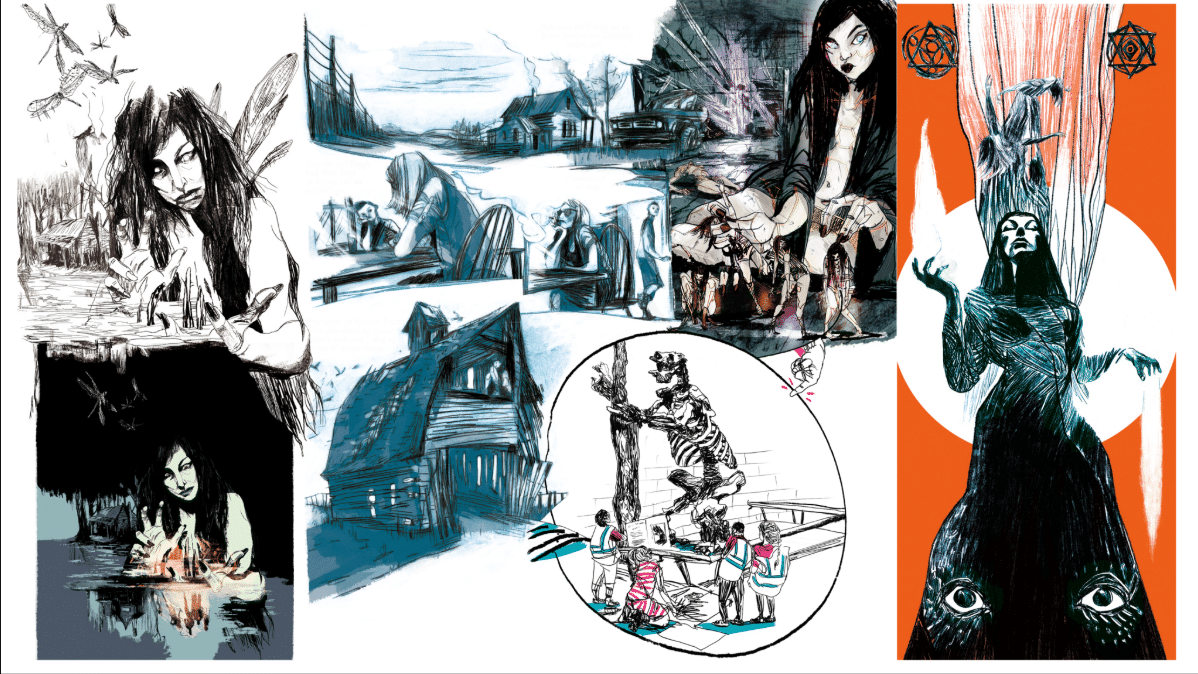
BIRD: An enormous a part of how psychological well being and sickness are portrayed in well-liked tradition is that there’s an ‘acceptable’ solution to discover them, and an ‘unacceptable’ method. It’s very a lot an unstated factor. You see artworks praised for the way they discover psychological well being and psychological sickness, however a number of them don’t discover a number of the very actual issues there. What you talked about earlier about grief displaying as an indignant despair, for instance.
SULLIVAN: Folks suppose, as I did then, that it seems a sure method. I used to be making an attempt to not have any of these tropes in my ebook, like individuals sitting in corners, with heads of their palms, or hiding in mattress away from the world. That’s exactly how it’s for some individuals, however I feel we’ve additionally gotten right into a trope with it. One which kills me is narcissism being utilized in a method that’s the full reverse of the parable, which might be about nature and utilizing the presents you’ve when you’ve them. Narcissus was lovely and will’ve used it, however didn’t, so nature took him again. It’s not nearly him taking a look at himself within the mirror on a regular basis, or horrific individuals like that bloody orange man-baby. It’s about making an attempt to widen that idea, and never restrict it.
Grief is completely different for everybody. Psychological well being is completely different for everybody. I needed to open that dialog and make it a broader dialogue on what occurs when your life falls aside and while you’re actually arduous to assist. I used to be spiky, aggressive, and at all times selecting fights with individuals. I labored at a pub, and I’d decide fights with huge blokes after I was drunk. Usually, they’d inform me to shove off, however one night time, they didn’t, and it was dangerous. Certainly one of our bouncers, who had been in jail 3 times, advised me I had an anger drawback and wanted to get assist. He’d name me after each session with a therapist, asking the way it went and the way I used to be doing. Sadly, he didn’t heed his personal recommendation and ended up again in jail, but it surely was superb to have his help and somebody who recognised it for what it was.
BIRD: What’s it been wish to work with Avery Hill Publishing?
SULLIVAN: They’ve been improbable. My first writer, Unbound, was a horrific expertise. I had an incredible editor, Lizzie Kaye, however then she was sacked as we had been going to print. They had been downsizing and made her redundant, so I had no comics editor on the finish. The writer tousled the print run, which bought actually dangerous, so we couldn’t let the books exit. I managed to get Barking reprinted, but it surely took a number of authorized threats to make that occur. I bought the 1.5K print run to finish my contract with Unbound and bought my full rights again. It then took three years of speaking to numerous publishers. I had no books left of a critically acclaimed comedian that had no publishing house or future, after which I chatted to Ricky Miller at Gutter Lizards, a small press truthful. It was in a room above a pub. Ricky picked up my different ebook, Shelter, and emailed me if I had any extra tales as a result of Avery Hill was . I mentioned sure! – I’m a giant AHP fan, and advised them Barking additionally wanted a house. They took it on, and it’s been a dream to work with them. They’re a small workforce, and every part’s performed part-time, however they work so arduous, and it’s been such a pleasure. I’m very blissful to be part of their canon.
BIRD: Your distinctive carbon and typewriter sheet approach results in one of the vital distinctive visible sensibilities in comics. How did you develop that type?
SULLIVAN: I used to show location drawing at a college. We’d exit on-site and have to attract the buildings and the individuals there. Certainly one of my college students, Hannah Simpson, introduced these carbon typewriter sheets; she’s a improbable illustrator, and I used to be intrigued. It produces this pretty mono-print texture. It’s like tracing paper, nearly. It seems like a black piece of paper, and you need to press on it, leaving the impression of carbon behind like switch paper. I used to be sketching the concepts for Barking and was initially decided to do it in biro, but it surely was taking me endlessly to color the black canine. I requested her if I may steal that approach, and she or he mentioned, “In fact!” So I attempted it for the canine. I may use my nails, sticks, and previous dip pens, which had been used for lettering. It rapidly turned an element. You may’t see what you’re drawing, so it frees me up. Barking was such an emotive ebook, so private, the carbon meant I may simply free sketch and actually go for it, and now I discover this system arduous to not use. It’s undoubtedly develop into my factor. Locations like right here at MCM, when individuals come to get a ebook, I can present them how I draw firsthand, and you may see the response as you carry it, to disclose. It’s pretty while you get wowed reactions.
BIRD: It blew my thoughts after I first noticed it. I simply assumed it was black on white paper, so after I noticed the black paper and also you pulled it off, I used to be like “Wow!”
SULLIVAN: My pal, Davidt Dunlop, says it’s witchcraft. I fairly like that, we are going to follow that!
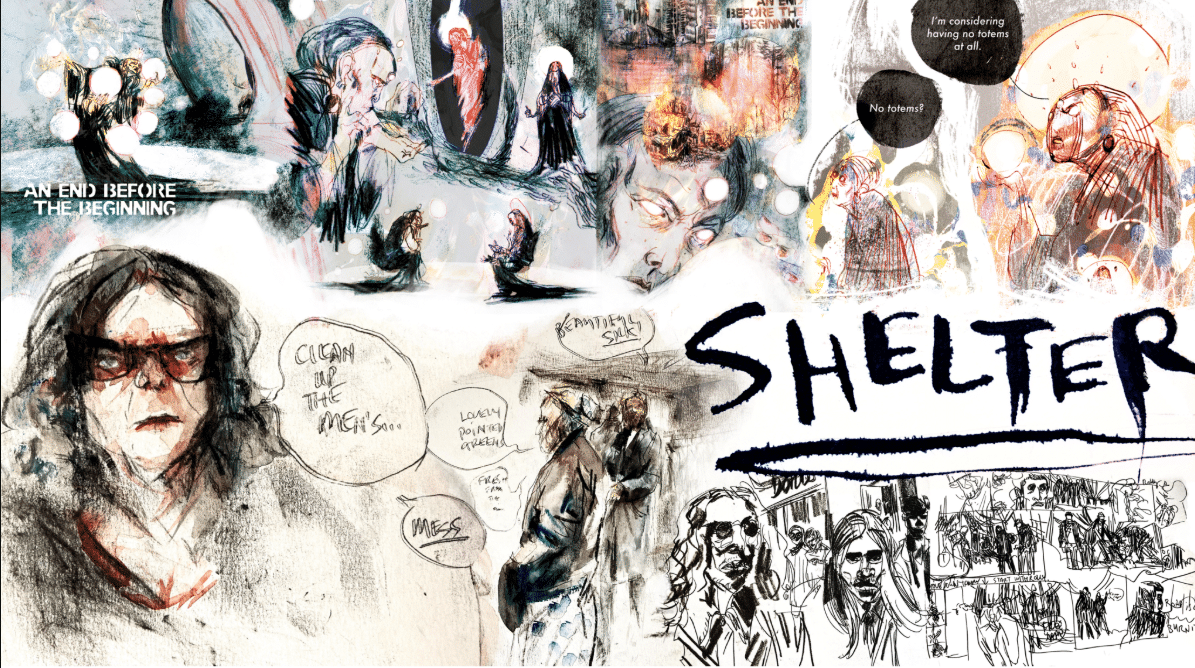
BIRD: As we mentioned earlier, Barking explores psychological well being and sickness in such a vivid and poetic method whereas nonetheless feeling deeply relatable and correct. Do you’ve any recommendation to creators who want to focus on severe subjects equally to what you probably did with Barking?
SULLIVAN: Some individuals might be actually good at placing themselves into their tales, like Zoe Thorogood, who does it with such aptitude, however which may not be one thing you additionally really feel snug with. Like I mentioned earlier, I didn’t. If you take folklore, fiction, and issues that individuals already recognise and hyperlink them to what you’re making an attempt to convey, I feel it may be a good way to get in contact with readers. Our minds are already educated with fairy tales and such sorts of narratives. You need to use these constructions and put your experiences into them. It may be an incredible machine. If it’s a tough subject, you possibly can ship it beneath the radar; don’t shove it of their faces, however discover it by permitting inquisitiveness. I discover that persons are rather more open to speaking about it if one thing difficult is delivered via fiction.
Once I was making Barking, I believed I’d have a particular kind of reader—individuals who like autobiographical comics and books like that—however my readership has ended up with extra individuals who like horror and fiction. My comics resonate with these points of storytelling, which is superb. I’m lucky with my readership, who appear open to difficult subjects and benefit from the combine with folklore as a lot as I do.
BIRD: I used to be engaged on one thing just lately that was autobiographical in nature, however I additionally had that disconnect the place I wasn’t positive I needed to place myself on show.
SULLIVAN: It’s arduous.
BIRD: It truly is, and it’s arduous to painting your self with out your personal ideas on your self influencing it an excessive amount of.
SULLIVAN: You’re having a dialog with your self, about your self. It will get very meta!
BIRD: I needed to divorce it from myself somewhat bit.
SULLIVAN: That’s why character is a superb factor. Alix in Barking is me, however making her a personality allowed me to go somewhat additional with the honesty about what she was experiencing. I don’t suppose I might’ve gone as far with out it. I put in a sexual assault that occurred to me. I couldn’t have drawn that as me, although it’s fully the identical expertise and circumstances that occurred to me. Utilizing Alix meant that I may do it. Make a personality! Consider it as an alter-ego.
BIRD: You contributed paintings to the movie adaptation of Max Porter’s Grief Is The Factor With Feathers. How did that come to be?
SULLIVAN: I’m so excited. It was an occasion of full serendipity. I learn Grief Is The Factor With Feathers after I was ending Barking. I used to be following Max Porter on Twitter, and he reached out to me about getting a duplicate of Barking, again when it was nonetheless fairly difficult to get a duplicate of it as a result of I had all of them. And I advised him that I’d learn and cherished his ebook, and it was an enormous inspiration. I provided to ship him a duplicate, and in his actual phrases had been “Fuck that, I’ll purchase it, but it surely higher be good!”
BIRD: No strain!
SULLIVAN: Proper? Fortunately, he cherished it. After they began doing the variation, they determined to alter Dad’s occupation from being a Ted Hughes scholar to a graphic novelist. Dylan Southern, the director and screenwriter, had additionally learn Barking, and so after they wanted an artist, I used to be one of many names on the record. Throughout the pandemic, Dylan and I had some chats on Zoom, however the world went a bit psychological, and it went quiet. On the finish of 2023, Dylan emailed me out of the blue asking if I used to be nonetheless up for it, and I instantly agreed. He lives close to me, so we went on a stroll round a Victorian cemetery and simply chatted via it. He’s an enormous comics fan. He grew up loitering in comedian retailers within the Seventies and was very eager to get every part about being a graphic novelist proper. He provided me the job of making all of the artwork for Dad. Benedict Cumberbatch performs Dad, so we had a drawing lesson, with the carbon because it’s a particular approach. Dylan, Max, and I’ve all misplaced our fathers, so we’re all bringing that actual expertise to the movie. It’s such a labour of affection. I created all Dad’s on-screen artwork within the movie, together with sketchbooks, ebook covers, work, and all types. Cumberbatch was an incredible sport and actually took on all that I used to be saying, and it was a tremendous expertise. My favorite half is CROW, a large crow man, which is how Dad manifests his grief, just like the canine in Barking. It’s an precise individual within the movie. They constructed a swimsuit, based mostly on work by the sculptor, Nicola Hicks. The performer for it, Eric Lampaert, is on stilts and places on an animatronic crow’s head. It’s splendidly creepy, Eric’s such a tremendous bodily performer. Crow is voiced by David Thewlis, with a tremendous remainder of the forged together with Sam Spurell from Fargo. He was the terrifying haircut dude and an unbelievable actor. I’m actually excited for it to come back out. They’ve simply secured distribution for the UK and Eire, in addition to the US and Canada, to be launched in October. I’m assuming will probably be launched at an analogous time right here, so look out for information quickly. I’m within the prime credit, so be at liberty to cheer while you spot me!
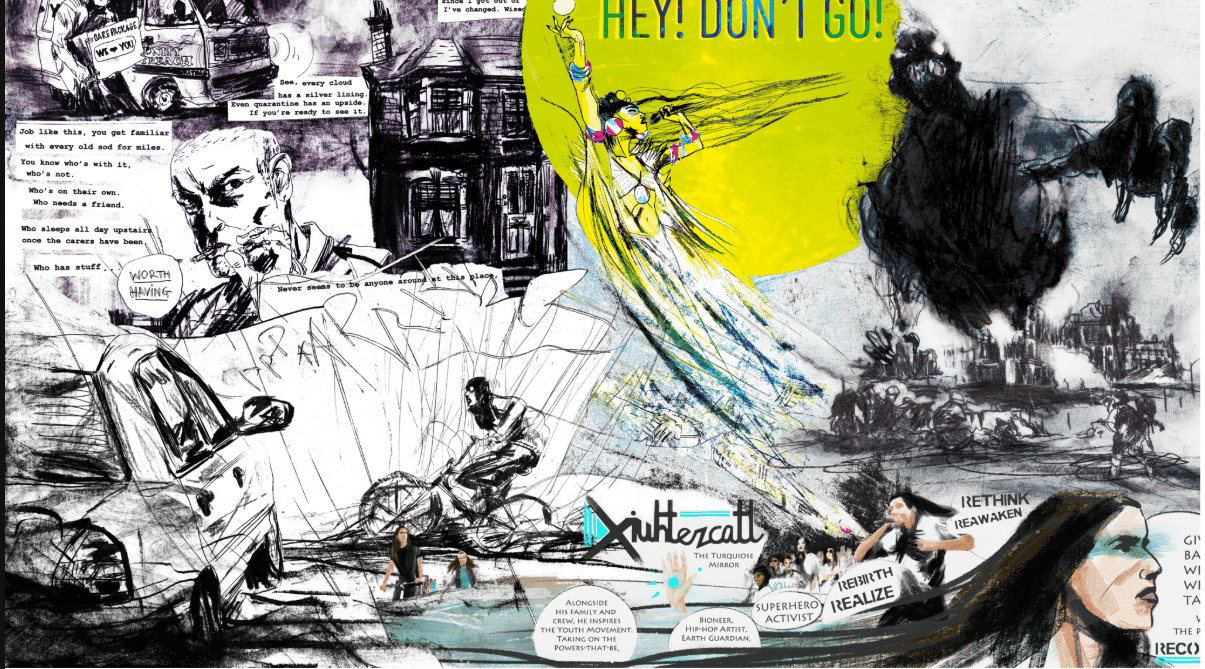
BIRD: You’ve been working with the Lakes Worldwide Comics Pageant to do outreach initiatives throughout the UK and different international locations as nicely. Has that modified the way you view the emotional affect comics can have?
SULLIVAN: Yeah! It’s been actually astonishing. If you go to the Pageant itself, it’s fairly intimate and doesn’t have many exhibitors. It’s not as large as Thought Bubble, however it is vitally worldwide. I’ve been an exhibitor and I’ve been a visitor, however I went to the Philippines with them final yr alongside Mollie Ray. Seeing how Julie Tait and the LICAF workforce function in different international locations with their festivals was pleasant. Julie suggested PICOF (Philippines Worldwide Comics Pageant), serving to them to arrange and get help via their authorities. She mentored all of them via, and we attended their first in-person pageant in Manila. It’s a improbable occasion with a small-press focus and really LGBTQ+ pleasant. The Philippines have traditionally been a really catholic nation however persons are lastly expressing their queer identification and so they’re selecting to do this via comics. It was one of many nicest festivals I’ve been to. Paolo Herras and Kris Porio, who run it, are simply the loveliest individuals on earth. We additionally helped run LICAF’s Comics Can Change The World program. Going out to neighbourhoods to show youngsters learn how to do four-panel comics. Certainly one of these was an NPO in a really low-income space. These youngsters have actually arduous lives, so we simply needed to present them an hour and a half to relax and draw some stuff. It was difficult, however they softened to the concept and ultimately loved the programme, particularly after we gave them comics to maintain to learn and supplies to attract their very own comics.
LICAF is doing these sorts of issues all around the world. I’ve been working with them to mentor a Palestinian artist on his experiences of being a refugee from Gaza, who left earlier than the battle, Khaled Jarada. His household remains to be there and has to take care of the present horrific scenario, while Khaled is trying to discover his experiences via comics. It’s an excellent and vital work that I hope will get realised and into readers’ palms quickly. LICAF can also be co-running a comics camp in Bethlehem, which I helped devise a program for, with Mollie going to show. The speculation is that comics can change the world via storytelling, and I do suppose there’s completely one thing in that.
Quite a lot of comedian festivals work collectively; they chat and assist one another out, it’s that background stuff we don’t at all times see, and I really like seeing that. How they’re run and the way they get funding. I wish to run a pageant in the future, perhaps as soon as I’ve moved to Brighton, so I wish to understand how they get funding and neighborhood help. Festivals enable us to raise one another and cross on data. It widens the neighborhood side of comics in addition to regionally, but in addition there’s a skilled side that brings extra individuals into the business. I’m actually intrigued by that potential.
BIRD: You latterly bought to go to the Homes of Parliament on behalf of LICAF while the Comics Cultural Influence Collective was there to ship a petition. What was that have like?
SULLIVAN: We had been there for very related targets. They delivered their petition to realize funding for a nationwide arts grant. Video video games have authorities funding and a lobbyist group to get tax aid. The Comics Cultural Influence Collective needs to have one thing related for comics. Their objective is creator-focused, making an attempt to assist individuals beginning and people already working in comics. It’s also an excellent concept to create bursaries for individuals, and I hope there’s some traction. LICAF was there as a result of they’ve partnered with a brand new commerce organisation, ComicBookUK, run by Mark Fuller, who works at Westminster with lobbyists. He seen that nobody was lobbying on behalf of comics, and there was no MP’s lobbyist group for that. He’s been working from inside to herald MPs resembling Chris Bryant, the tradition secretary, and Tim Farron, who submitted an Early Day Movement for debate supporting LICAF, ComicBookUK, and comics as an business. I used to be there on behalf of LICAF, alongside pageant patrons Sean Phillips, Charlie Adlard, and Bobby Joseph, the comics laureate. Avery Hill Publishing, Rise up, and Arts Council England had been there. In the meanwhile, ComicBookUK is concentrated on working with publishers to export UK comics globally, in addition to making an attempt to get extra funding our bodies concerned and lobbying for advantages resembling tax breaks.
The 2 teams have related targets however work in another way in direction of them. CCIC is superb, they’re all comics creators who’re making an attempt to get the reality concerning the state of the business out, how badly we’re paid, and the way many people are solely doing it part-time. They’re making an attempt to alter that for the higher, which is basically spectacular and heartfelt, and I want all of them the very best. LICAF is making an attempt to get UK comics on a worldwide stage and recognise its worth in tradition and literacy. Noble goals certainly. The extra individuals shouting about comics, the higher, so far as I’m involved.
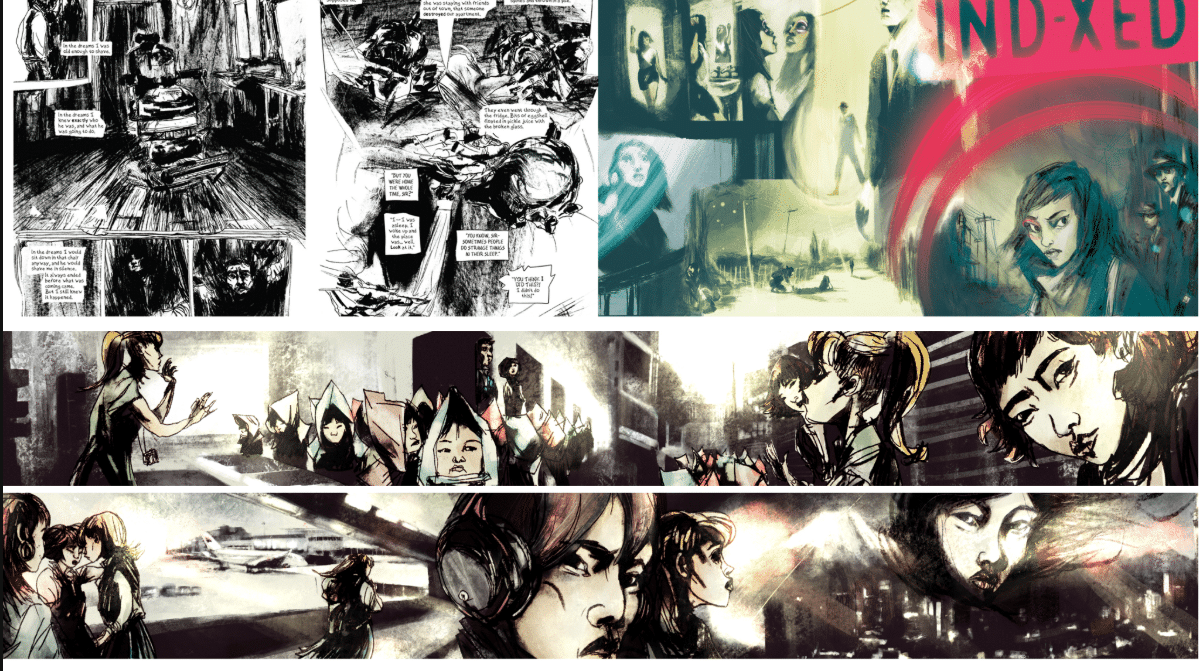
BIRD: What would you like readers to remove out of your work?
SULLIVAN: I’d actually wish to put individuals within the footwear of others’ experiences. I hope I can engender some empathy, particularly in relation to the experiences that is likely to be somewhat bit overseas to them. I’ve a number of male readers – my final ebook, Shelter, has a scene of sexual assault after a lady is adopted house, and so many male readers of mine have advised me that they hadn’t thought of what it will be wish to be that girl. That a part of the comedian was born after I used to be going house one night time and saved getting on the identical practice as this man, and we bought off on the similar station and walked the identical method house, so I believed, “Oh my god, he in all probability thinks I’m stalking him!” That led to me desirous to discover what would occur if somebody did imply to do this. I at all times need my books to be entertaining, I really like folklore so I like to put a few of that into it, however principally it’s about placing you in another person’s footwear, and hopefully you’ll be open to it. I feel that builds empathy. The extra we perceive about how others really feel, the nicer we might be, the extra caring we might be.
BIRD: Implausible. Thanks a lot on your time.
SULLIVAN: Thanks!
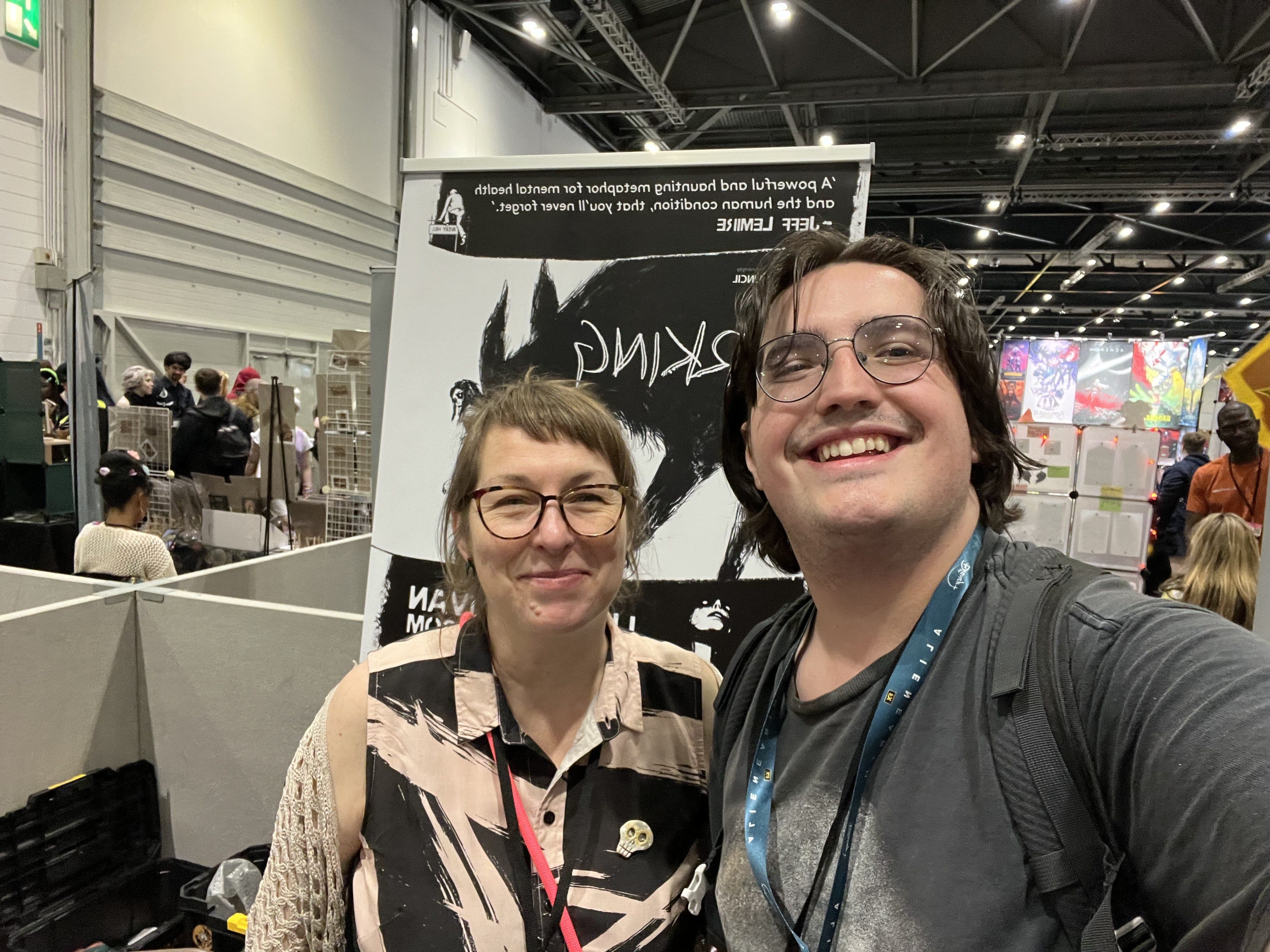
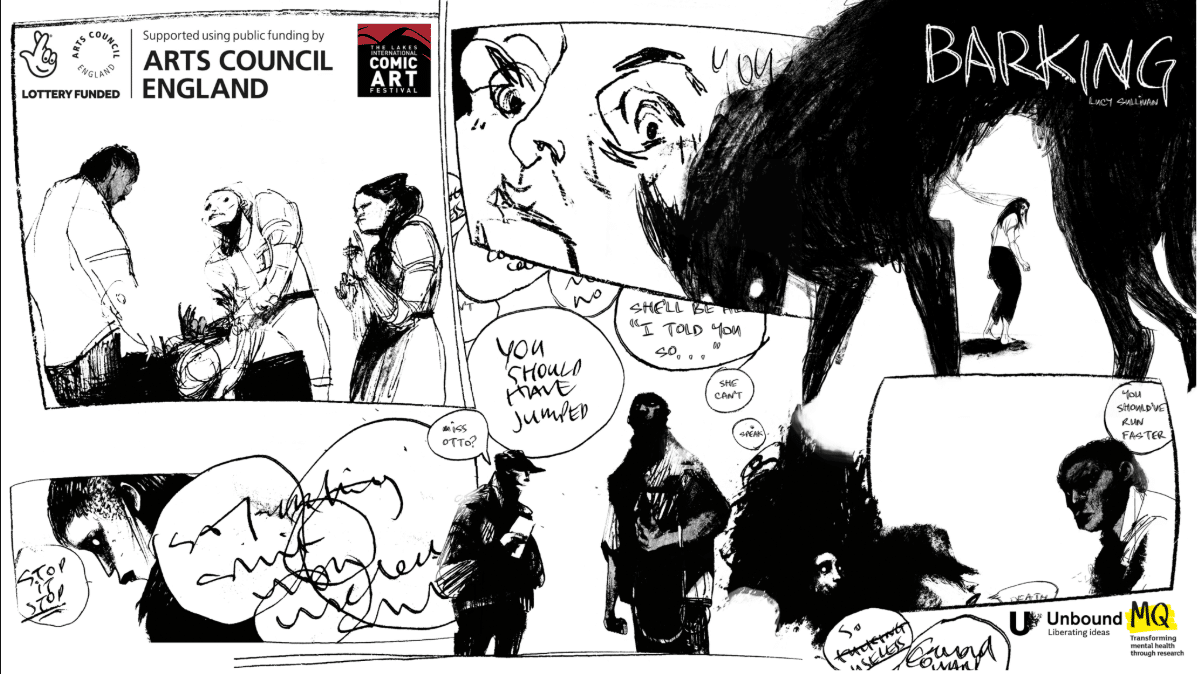

0 Comment